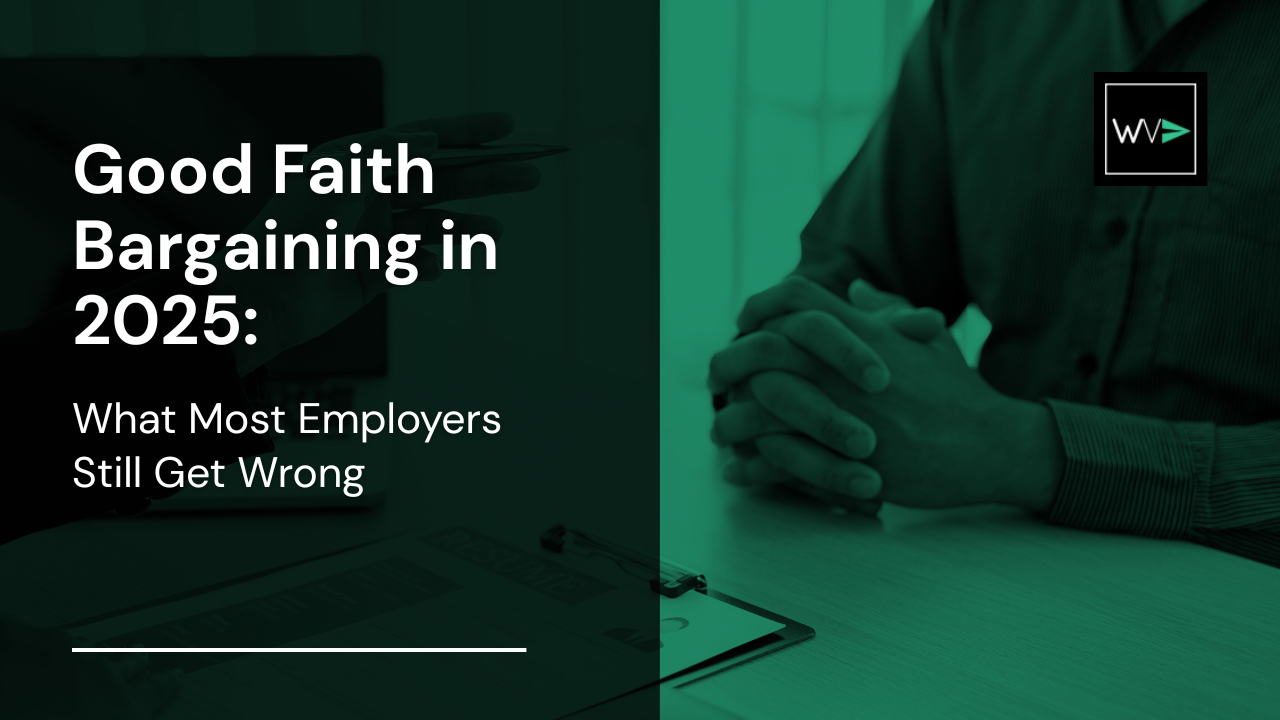
Enterprise bargaining has always been complex. But in 2025, it is no longer just about pay and conditions. It is about conduct, process and intention.
With new laws, sharper union focus and a growing list of Fair Work Commission interventions, good faith bargaining is back in the spotlight. And many employers are being caught out by mistakes they do not even realise they are making.
If you are entering or preparing for bargaining this year, here is what you need to know.
What Does Good Faith Bargaining Actually Mean?

Under the Fair Work Act, all parties in bargaining must act in good faith.
That includes:
- Attending and participating in meetings
- Disclosing relevant information in a timely way
- Responding genuinely to proposals
- Not engaging in capricious or unfair conduct
- Considering each other’s position respectfully
Sounds straightforward, right?
But in practice, missteps happen quickly. And they often lead to delays, breakdowns and unwanted Fair Work attention.
Where Employers Are Still Getting It Wrong in 2025

Here are the most common errors we are seeing in the current environment:
❌ Treating bargaining as a once-a-year compliance exercise
❌ Withholding key information based on strategy rather than transparency
❌ Failing to properly consult before finalising decisions
❌ Using delays or dismissive responses to manage union demands
❌ Relying on outdated communication templates or practices
In this climate, these behaviours can now lead to serious consequences including bargaining orders, reputational damage and even forced arbitration.
What Has Changed This Year?

In 2025, the Commission is placing more weight on behavioural indicators. They are looking beyond what is said on paper and focusing on the tone and intent behind employer conduct.
This means HR and management must:
- Demonstrate transparency and authenticity
- Maintain clean documentation
- Engage with employee reps or unions consistently
- Avoid tokenistic consultation or procedural shortcuts
Employers who fall short risk losing control of the bargaining process entirely.
How Workvergent Can Help
We work with leaders across Utilities, FMCG, Start Ups and Small Business to build strategic, compliant and practical bargaining processes.
Whether you are negotiating a new agreement or preparing for re-engagement, we help you:
- Prepare for negotiations with confidence
- Avoid conduct that could breach good faith
- Strengthen your internal communication and positioning
- Respond to union claims effectively
Protect both compliance and culture
Ready to Bargain with Confidence?
If you are unsure where your current approach stands, it may be time for a reset.
Contact us or visit www.workvergent.com.au
Interested in hearing
how we do it?
